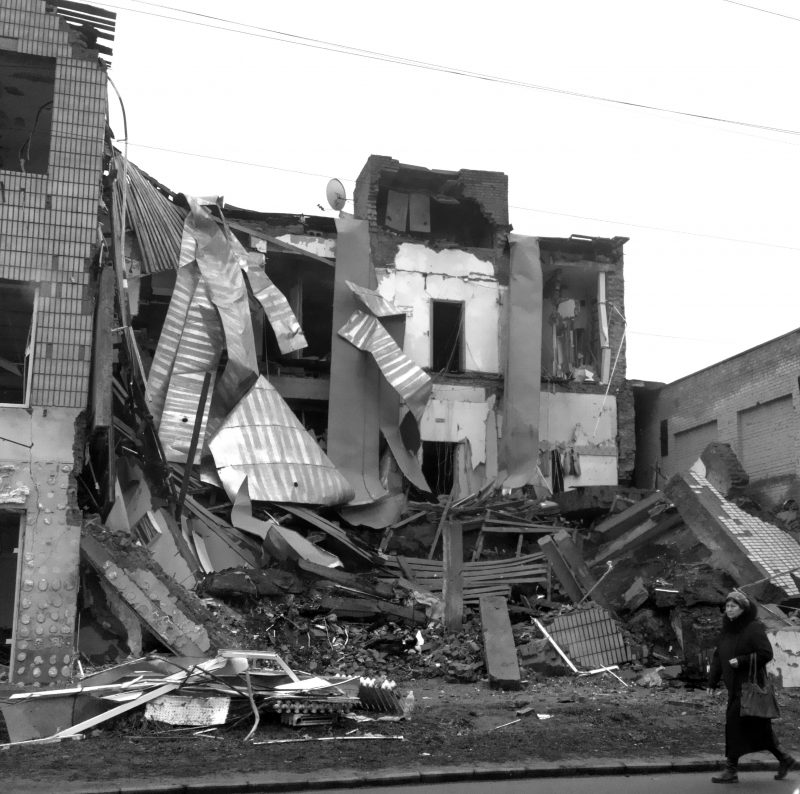The burning of the Quran by the far-right politician, Rasmus Paludan, in Sweden on 21 January 2023 brought the debate about the limits of freedom of expression and the harm principle to the forefront. In this incident, Paludan’s choice of location was also noteworthy, as he chose to ignite the action before the Turkish Embassy, in a period when Sweden and Türkiye were negotiating the NATO membership of the Scandinavian nation. While Paludan has already recorded a notorious history of this kind of incident, the selection of location during the NATO negotiations refers to the fact that Paludan might have political motivations beyond his Islamophobic standpoint. Whereas it is still not clear how the incident would affect the negotiations, Sweden has already deepened its partnership via cooperation agreements with NATO in areas such as crisis management, counterterrorism and cybersecurity issues.
The incident also is not the first Quran burning incident. Recently, the “International Day of Burning the Quran,” which the priest, Terry Jones, wanted to bring to life on 11 September 2010, was cancelled for the moment due to intense protests. Two years later, the authorities arrested his attempt to burn 3,000 Qurans in a public park, which was the crime scene, for carrying weapons without permission. Many European politicians and activists have emerged with systematic and continuous insults against the Quran. Dutch Geert Wilders, who made a political career out of Islamophobia, put forward the goal of banning the holy book of Muslims in 2016. Swedish Rasmus Paludan tried to carry out acts of burning the Quran in different public countries in 2020. Moreover, he had led off the Quran burning incident in 2022, leading to the arrest of 17 individuals.
While burning any religious text is deeply offensive, it is essential to remember that freedom of expression is a fundamental human right enshrined in international law and is vital to any functioning democracy. This right includes the freedom to express unpopular, offensive, or even hateful ideas as long as this expression does not incite violence or hatred against specific individuals or groups. However, can the Quran burning incident be accepted as freedom of expression? It is vital to remember the harm principle for freedom of expression. In the case of hate speech or incitement to violence, for example, it is legitimate for states to restrict freedom of expression to protect individuals or groups from harm. This balancing act between freedom of expression and protecting vulnerable groups is one of the most complex and challenging issues in a modern democracy. In the case of the Quran burning, it is clear that the act is deeply offensive and hurtful to many Muslims worldwide. Because, for Muslims, the Quran is not just a book, but a sacred text that holds great spiritual and religious significance. It is a symbol of Muslims faith, and burning it is seen as an insult to Allah (God) and a desecration of Islam. Also for Muslims, burning the Quran is seen as an attack on the very essence of their faith. Furthermore, the act of burning the Quran can be accompanied by hateful and discriminatory language and actions towards Muslims, which compounds the hurt and offense felt by the Muslim community. It is a reminder of the discrimination and violence that many Muslims have faced throughout history and continue to face today. However, it is essential to consider the context in which this act occurred. The far-right group responsible for the burning is known for its extreme anti-Muslim views and has been involved in numerous incidents of hate speech and incitement to violence. For example, Danish far-right politician has been barred from the UK after threatening to burn a copy of the Quran in Wakefield. Also, far-right activists burned a Quran in the southern Swedish city of Malmo in 2020, sparking riots and unrest after more than 300 people gathered to protest. In this context, it is reasonable to argue that the burning of the Quran was not an innocent act of expression, but rather an intentional act of incitement to hatred and violence against Muslims.
The incident in Sweden in January 2023 raises essential questions about the limits of freedom of expression and the harm principle. While freedom of expression is an important right, it should not be used to justify actions that cause harm to others, especially in the context of rising hate speech and incitement to violence against minority groups. It is only through a careful balancing of these principles that we can create a truly inclusive and democratic society. While free speech is an essential aspect of a democratic society, it should not be wielded as a shield to justify actions that harm others.
The incident can also be seen as an example of the consequences of failing to balance these principles. If a person uses their freedom of expression to spread hate speech against a particular group, it can lead to discrimination and even violence against members of that group. This can create an atmosphere of fear and exclusion, undermining the principles of inclusivity and democracy. Therefore, it is important to ensure that freedom of expression is not used to justify harmful actions.
Bibliography
TRT World. (2022, May 16). Erdogan: Türkiye will not greenlight NATO membership of Sweden, Finland. Erdogan: Türkiye will not Greenlight NATO membership of Sweden, Finland. Retrieved February 29, 2023, from https://www.trtworld.com/turkey/erdogan-t%C3%BCrkiye-will-not-greenlight-nato-membership-of-sweden-finland-57188.
Kulik, R. M. (2023, February 22). Islamophobia. Encyclopædia Britannica. Retrieved March 29, 2023, from https://www.britannica.com/topic/Islam.
Baynes , C. & PA Media(2023, March 20). Danish far-right leader banned from UK over threat to burn quran in Wakefield. BBC News. Retrieved March 29, 2023, from https://www.bbc.co.uk/news/uk-england-leeds-65020528.
Bell, M. (2021). John Stuart Mill’s Harm Principle and Free Speech: Expanding the Notion of Harm. Utilitas, 33(2), 162-179. doi:10.1017/S0953820820000229
Van Mill, D. (2017, May 1). Freedom of speech. Stanford Encyclopedia of Philosophy. Retrieved February 29, 2023, from https://plato.stanford.edu/entries/freedom-speech/#:~:text=2.1%20John%20Stuart%20Mill’s%20Harm%20Principle,-Given%20that%20Mill&text=Mill%20claims%20that%20the%20fullest,for%20the%20dignity%20of%20persons.
Rankin, J. (2023, January 27). Burning of Qur’an in Stockholm funded by journalist with Kremlin ties. The Guardian. Retrieved February 29, 2023, from https://www.theguardian.com/world/2023/jan/27/burning-of-quran-in-stockholm-funded-by-journalist-with-kremlin-ties-sweden-nato-russia.
Ejiofor, P. F. (2023). Decolonising Islamophobia. Ethnic and Racial Studies, 1-30.
Armstrong, K. (2023, January 21). Turkey condemns ‘vile’ sweden quran-burning protest. BBC News. Retrieved February 29, 2023, from https://www.bbc.com/news/world-europe-64360528.
Ozturk, B. (2023, January 25). The burning of the Quran: Why Sweden is headed for disaster. The burning of the quran: Why Sweden is headed for disaster. Retrieved February 29, 2023, from https://www.trtworld.com/opinion/the-burning-of-the-quran-why-sweden-is-headed-for-disaster-64810.
TRT World and agencies. (2020, August 29). Riots in Sweden after Quran burning by far-right activists. Retrieved February 29, 2023, from https://www.trtworld.com/europe/riots-in-sweden-after-quran-burning-by-far-right-activists-39309.
Khan, H. W., Fatima, M. F., Sheikh, M. K., & Ahmed, M. K. (2023). Hate Speech And Ridiculing Islam: An Overview In The Context Of Freedom Of Expression. Journal of Positive School Psychology, 1233-1250.
Russell, L. (2010, July 31). Church plans quran-burning event. CNN. Retrieved February 29, 2023, from http://edition.cnn.com/2010/US/07/29/florida.burn.quran.day/index.html.
Wikimedia Foundation. (2023, February 22). Dove World Outreach Center quran-burning controversy. Wikipedia. Retrieved March 29, 2023, from https://en.wikipedia.org/wiki/Dove_World_Outreach_Center_Quran-burning_controversy#:~:text=In%202010%20Jones%20announced%20plans,International%20Burn%20a%20Quran%20Day%22.
Al Jazeera. (2010, September 10). The cost of burning the Quran. Features | Al Jazeera. Retrieved February 29, 2023, from https://www.aljazeera.com/features/2010/9/10/the-cost-of-burning-the-quran.
Cristaudo, W. (2023). Free Speech in a World of Diversity, Inclusion and Equity. The European Legacy, 1-8.


